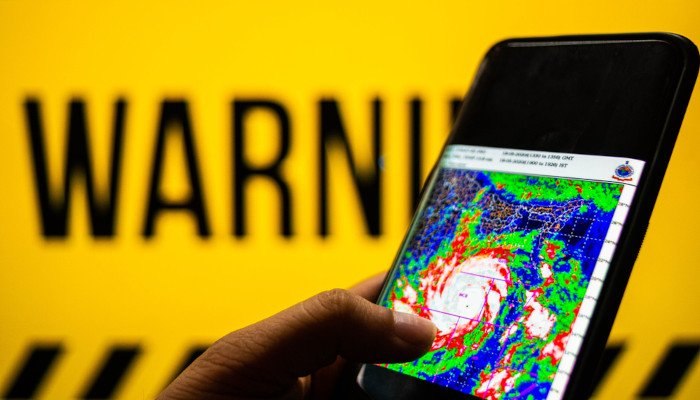During the devastating floods at the end of July, many of those affected were not warned or warned in time. One finding: the majority of German citizens (83%) would like to be warned in the future of such disasters via SMS on their mobile phone or smartphone.
93 percent of those who use a cell phone or smartphone themselves would like to have this first-hand information. This was the result of a survey conducted on behalf of the Bitkom Digital Association among 1,030 people aged 16 and over in Germany. Cell broadcast technology makes it possible to send a warning message to all mobile phones in a particular place. Dr. says. Bernard Rollider. “The federal government should establish the necessary legal foundations and technical requirements as soon as possible for the introduction of cellular broadcasting in Germany and enter into a dialogue with network operators and telecoms companies about implementation.” And the Federal Council of Ministers wants to introduce cellular broadcasting on Wednesday of this decides the week in Germany.
More often than not, warning on television (95 percent), radio (94 percent) as well as sirens (86 percent) is more desirable than SMS on a cell phone. Emergency warning apps for smartphones already available in Germany, such as NINA or KATWARN, are still far behind (55 percent), behind trucks with loudspeakers (71 percent) and digital screens in public places (63 percent). Only 44 percent want to be warned via push messages from news portals in the event of a disaster, 31 percent via a phone call, 25 percent via tools in social networks like Facebook Safety Check and 10 percent via email. Rohleder: “An advantage of digital technologies is that information can be obtained quickly and inexpensively in many different ways. We must use all methods, but especially those that reach a large number of people simultaneously. Unlike sirens, for example, Specific behavioral instructions can be given digitally.”
A clear criticism of the existing civil protection
8 out of 10 German citizens (79%) fear the recurrence of disasters in Germany in the future. At the same time, a very large majority (90 percent) criticized the fact that the federal government has over-digitized disaster control. 59% believe that Germany lags behind other countries in terms of disaster protection. About half do not want municipalities to continue to warn of disasters (54 percent). 52 percent demand that this task be taken over by a national authority in the future. Specifically, 80 per cent demand that the disaster warning be entered as soon as possible via SMS on a mobile phone.
Almost done!
Please confirm your email address!
Click the link in the email we just sent you. Also check your spam folder and whitelist us.
More information about the newsletter.
People want to be warned in every way possible
According to 94 percent of those who wish to be warned in the event of a disaster via automatic SMS such as cellular broadcasts on their mobile phones, they would like to receive warnings and relevant information on all available channels. 91 percent say they always have their cell phone or smartphone with them. 8 percent complain that emergency warning apps, which must be installed separately, are too complex for them. Just as many do not trust the warning procedures in place. And 3 percent cited as an argument in favor of automated treatment notifications for all that they can’t install any apps and therefore no corresponding warning apps on their mobile phones – among people aged 65 and over, this goes as high as 14 percent.
Of those who decline automatic cell phone text messages to everyone in the event of a disaster, half (49 percent) say there are more effective measures. 43 percent do not want the government to have access to their cell phones, and 41 percent say it would have worked without this technology. A third (33 percent) are concerned that their own devices will not work in the event of a disaster and more than a quarter (29 percent) are concerned about their personal data. 28 percent of them mentioned why they had already installed an emergency warning app. Rohleder: “Cell broadcast has the advantage of being forwarded to all phones in the cell and no phone number or special app is required. Thus, the warning is anonymous and you don’t have to worry about his personal data.”
Methodological note: Information is based on a survey conducted by Bitkom Research on behalf of the Bitkom Digital Association. 1030 people aged 16 and over were interviewed in Germany. The questions were: “How would you like to be warned in the event of a disaster, for example in the event of storms, floods or major fires?” “Why do you not want to receive automatic SMS in the event of a disaster?”, “Why do you want to be warned by automatic SMS in the event of a disaster?” and “To what extent do you agree or disagree with the following statements on the subject of civil protection?” The total population.
www.bitkom.org

“Devoted gamer. Webaholic. Infuriatingly humble social media trailblazer. Lifelong internet expert.”






